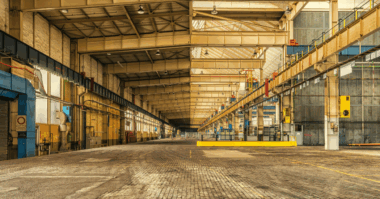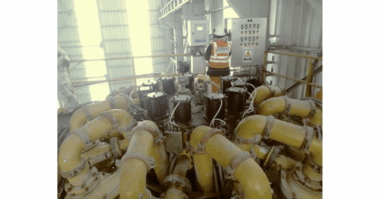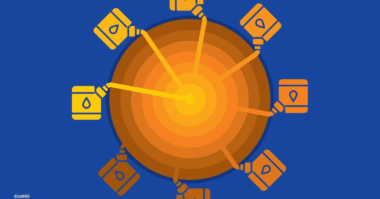This is the motto of my company. Some people see this on the logo and just snicker and others say it could be true. It does create some conversation and makes you think. But is it a true comment or just a gimmick to get a look? Well I happen to 100% believe in what it says and design all my training courses with the idea of improving equipment life many cycles.
So let us first define “forever”. The definition of forever when I was in charge of a maintenance team at a large plant facility years ago was; making equipment components last for a maintenance technician’s career in maintenance. This was 20-30 years. So we were always pursuing ways to make components last for many cycles more than the last time it failed.
Fortunately, I worked for a worldwide company that had an interest in equipment reliability and all the methods that can be used to accomplish this goal. Why were they so interested in equipment life cycles? The answer is to be more competitive in the world marketplace. At the time we were looking at lowering our worldwide maintenance costs by 100 million dollars per year. How would that look on the bottom line?
The one way you can do this like many companies do, is just cut the maintenance budget until you get the result you want. You can stop buying essential parts, you can reduce the maintenance labor force, or you can get rid of some maintenance supervision, or replace them with cheaper resources. But with these methods you have more failures, higher costs, lower rates, more quality issues, higher risk for H,S,&E incidents and many more problems in the future.
The other way is to spend more money in reliability processes that work, doing reliability processes on the correct equipment, and training everyone in these processes. The amount you spend will equal the time it takes you to reach your goals. You can get there faster by good planning and making sure your select the outside resources wisely so to maximize results for the money you invest. It’s not always the biggest vendors with the highest costs and the fancy computer based processes that will give you the best results. They may have the most resources but may have other plans for your money investment.
So what are these processes and how can any plant use them to become more reliable and extend equipment life cycles. Some would say that performing an asset criticality is an important step. I totally agree but you must look at many factors to determine an equipment criticality to know its level.
The following items are some of the other areas where you will need training and a complete understanding of the whole picture, if you want “forever”.
Procurement: You must purchase quality equipment components to have a chance at “forever”. Motors, bearings, pumps, gearboxes, etc. all have manufacturers that have better engineering for longer life.
Specifications: On new or rebuilt equipment you get what you think is good. Example: You can specify better balance standards on motor rotors and pump impellers to give the units longer life. There are many of these options I cover in my training that adds years of life.
Installation: How the new equipment is shipped, received, stored, and installed makes a huge impact on time to first failure. If installed correctly you can actually achieve and maintain precision alignment.
Lubrication: Since 50% of most plant equipment failures are lubrication related you better understand these principles. Initial lube and future lube tasks can increase component life by 10 times. This is another of my one day training course that has huge payback for long component life.
Operations: How equipment is operated makes a difference of 20% in the life of the equipment. There is no end to training.
Maintenance: How equipment is maintained can make another 20% difference in the equipment life. “That’s how we’ve always done it”, “don’t fix it till it breaks”, and the” OEM said this was best” will not take you to the promise land of “forever”.
Training and Knowledge: If you have the belief that experience is your advantage than you may be interested to know this. The Apache helicopter, a nuclear sub, the B1 bomber, are all operated and maintained by individuals that are 18-25 years old!
Forever is not easy and it’s not free. To get there takes understanding and knowledge of many equipment types and the components that make up the equipment. When I talked to management teams they always want to know, “which process in my arsenal of maintenance training processes has a payback in one year”? There are very few but it also depends on how bad you really are. The time to start is today. The company where I spent 26 valuable years of my life started in the late 90’s with improving reliability and is still at it today.
“Forever” it is a process and not a program. A program has an ending and a process goes on forever.
For more information on resources and training programs feel free to contact Charli or myself.
Terry Harris – Mr. Harris is a Certified Maintenance & Reliability Professional, certified through The Society of Maintenance & Reliability Professionals. Mr. Harris worked in the manufacturing/process industry for 26 years. Most of his time was devoted to maintenance area efforts with most of his career being devoted to improving the reliability of his plant and other US and European locations. Mr. Harris has performed training in the US, and 12 other countries.
Mr. Harris owns Reliable Process Solutions in which he performs training in the areas of Predictive technologies, Proactive Maintenance techniques, Lubrication Excellence and many other programs. Mr. Harris has developed many Proactive maintenance programs to bring maintenance operations to a more efficient and profitable stage. Many of the training programs teach companies how to make equipment last longer. These methods have been proven to extend equipment life by 3-8 times.



